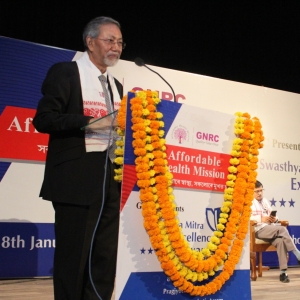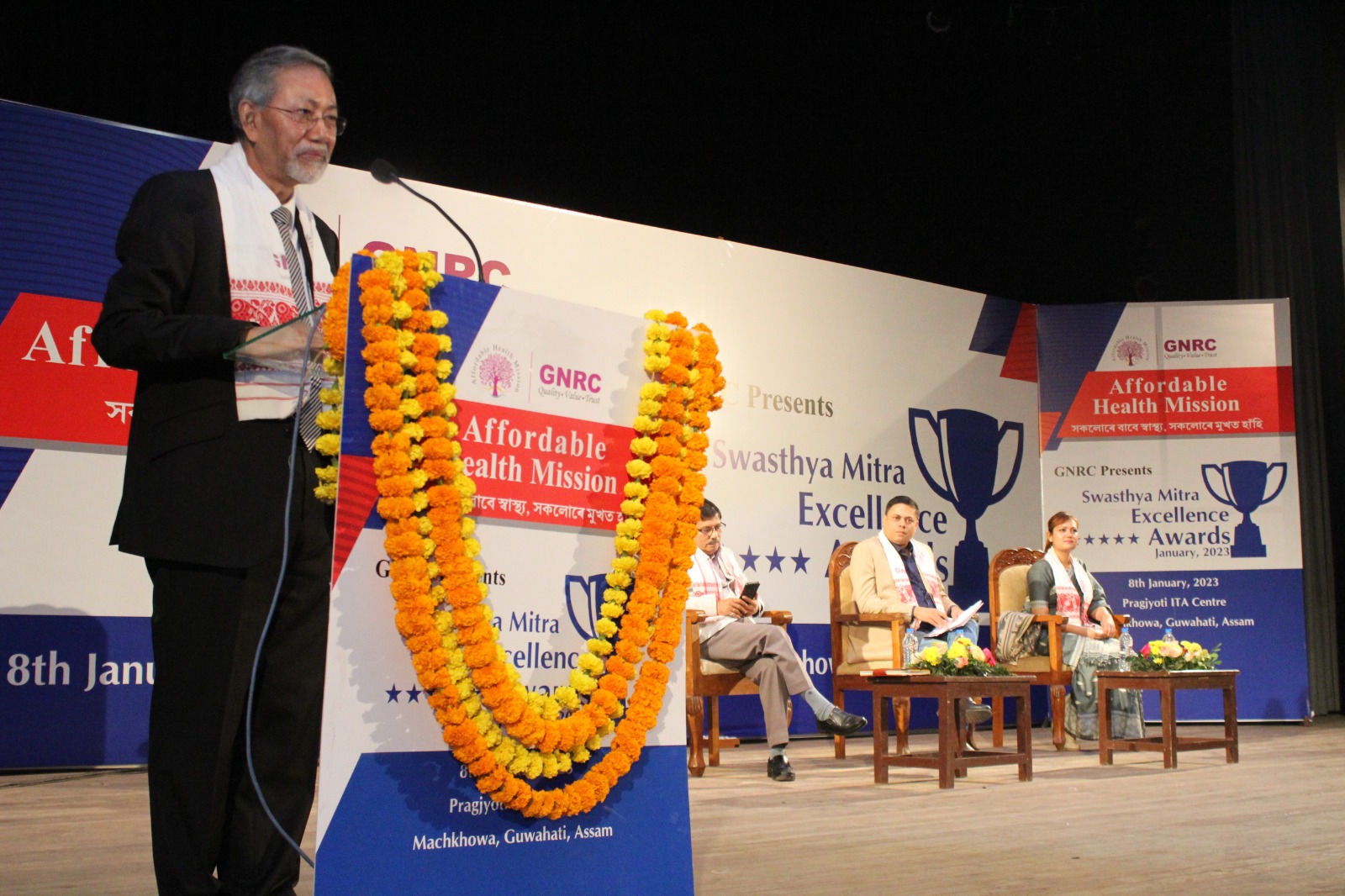
.jpg) Nava Thakuria
Nava Thakuria

Imagine a world where everyone, regardless of their financial status, can access quality healthcare without burdening their pockets. This vision, embodied by the Affordable Health Mission, can transform our society. It can prevent epidemics, reduce the burden of non-communicable diseases, and improve healthcare management for women, children, and elderly individuals. It's a world we all should strive for.
When the lack of affordable healthcare plunges millions of Indian families into poverty each year, hindering the government's efforts to uplift the economy of these families, initiatives like the Affordable Health Mission by GNRC hospitals, led by Dr Nomal Chandra Borah, become crucial. AHM is not just a beacon of hope, but a tangible solution that allows ordinary people to access affordable, accessible, and quality healthcare services. It represents a new dawn for economically downtrodden families, particularly in the North-east, a region that has long been overlooked.
Dr NC Borah, a man who transcended humble beginnings in a farming family in eastern Assam to become one of the nation's most renowned neurologists, envisions a future of affordable health benefits for millions of poor families in northeast India. His journey, chronicled in the biography, 'Hope Dawns in the East,' co-authored by Mumbai-based communication professionals Arnab Mukherjee and Sushmita Sarkar and published by Chennai-based Notion Press, serves as a testament to the power of determination and the potential for change.
Highlighting the promise of 'Health for all, smiles for all', the book comprises some articles, penned by Dr Borah, on various pertinent issues like improving the medical education system, dealing with the shortage of specialist doctors, highlighting the patient's right to have a second medical opinion, troubles created by many doctor's illegible handwriting in prescriptions, if healthcare is a science of medicines or an art of healing, etc. Dr Borah passionately argued in his piece that health is a fundamental human right and is critical for human dignity.
The handy and valuable book includes many photographs ranging from Dr Borah's early life to the present day, along with the portraits of his father, Karneswar Borah, and mother, Kanaklata Borah. The selected photographs also reflect his close association with legendary musician Bharat Ratna, Dr Bhupen Hazarika, and Jnanpith awardee author Dr Indira (Mamoni Raisom) Goswami. Former President Pranab Mukherjee, former State chief ministers Tarun Gogoi and Sarbananda Sonowal and many other luminaries are also seen along with Dr Borah's adorable family comprising wife Dr Jayshree Borah, two daughters Priyanka & Satabdee and son Madhurjya.
The GNRC (formerly known as Guwahati Neurological Research Centre) group of hospitals, established in 1987 at Dispur, was the first super-speciality healthcare centre in the region, catering to the needs of nearly 60 million people. Under the leadership of Dr Borah, the network of hospitals expanded to include units at Six Mile (Guwahati), Dispur, Barasat (West Bengal), and a unique one in North Guwahati. Dr Borah's dedication to healthcare also led to the creation of the Asian Institute of Nursing Education. To further his mission of preventive healthcare and early intervention, he launched initiatives like Swasthya Yatra and Medireach, and established a pool of community health workers named Swasthya Mitra, who tirelessly work for preventive and promotive care in rural and semi-urban areas.
GNRC hospitals also support the people under Ayushman Bharat (PM Jan Arogya Yojana) and Atal Amrit Abhiyan, which are sponsored by the Union government in New Delhi and the State government in Dispur. GNRC's affordable health mission supplements the government's mission to offer quality healthcare facilities to the citizens at an affordable cost through different initiatives. Similarly, its Telehealth helps patients in distant places to consult with GNRC specialists as and when needed. Borah asserts that a large volume of patients suffer because of preventable diseases and many can avoid hospitalisations if offered timely medical care. Most patients arrive at hospitals after the diseases become complicated. A healthy population is essential for socio-economic growth, asserted Dr Borah, adding that the good health of each person emerges as a priority for the peace, happiness and prosperity of the nation.